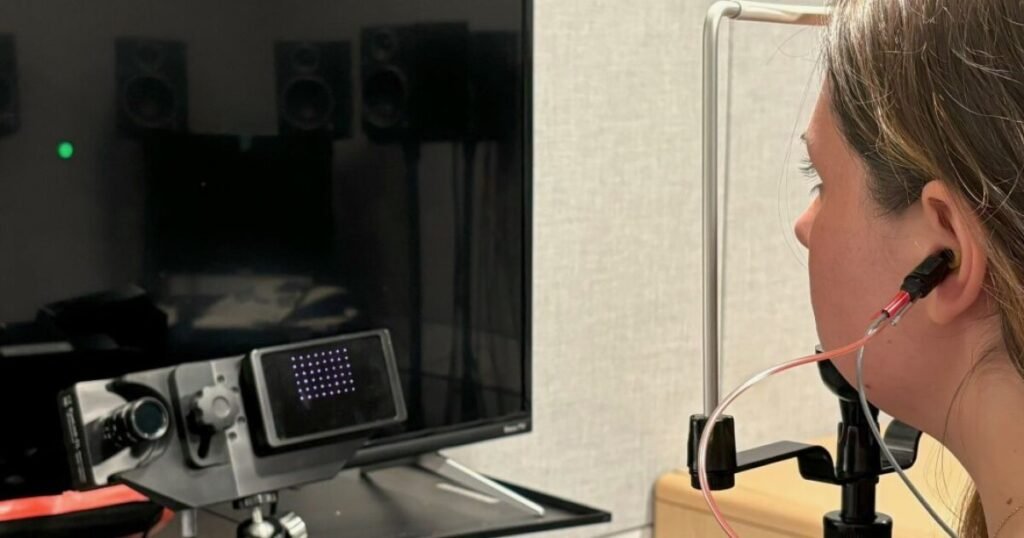Again in 2018, scientists at Duke College found that every time our eyes transfer, our ears make an imperceptible squeaking noise. Now, the researchers have developed a technique of telling the place an individual is trying by analyzing these sounds.
Though we do not consciously hear the noises, they are often picked up by a extremely delicate microphone positioned within the ear canal.
Lead scientist Prof. Jennifer Groh believes that they could happen as eye actions set off the mind to contract both the center ear muscle tissue or the hair cells – doing the previous helps dampen loud noises, whereas doing the latter amplifies quiet ones.
This association might assist us make sense of our environment, by robotically adjusting the sensitivity of our listening to primarily based on what we’re .
In a latest experiment, Groh’s crew and Prof. Christopher Shera from the College of Southern California recruited 16 adults (all with good imaginative and prescient and listening to) to take a easy check.
The volunteers began by visually monitoring the actions of a inexperienced dot on a pc display screen, with out shifting their heads. As they did so, an eye-tracking digital camera recorded the route of their gaze, whereas microphones of their ear canals recorded their ear sounds.
When the attention video and ear audio recordings have been subsequently cross-referenced, it was discovered that eye actions in particular instructions produced particular sorts of ear noises.
The scientists have been thus capable of inform the place a participant’s gaze was centered, just by figuring out what kind of noise “signature” their ears have been making. It was additionally attainable to do the alternative – the researchers might precisely inform what kind of sounds the volunteers’ ears have been making, by monitoring the route of their gaze.
It’s hoped that the crew’s findings will contribute to a greater understanding of human notion, probably resulting in extra correct and informative listening to exams.
A paper on the research was lately revealed within the journal Proceedings of the Nationwide Academy of Sciences. You may hear the ear noises within the video beneath.
Shifting Eyes Make the Ears Squeak
Supply: Duke College
